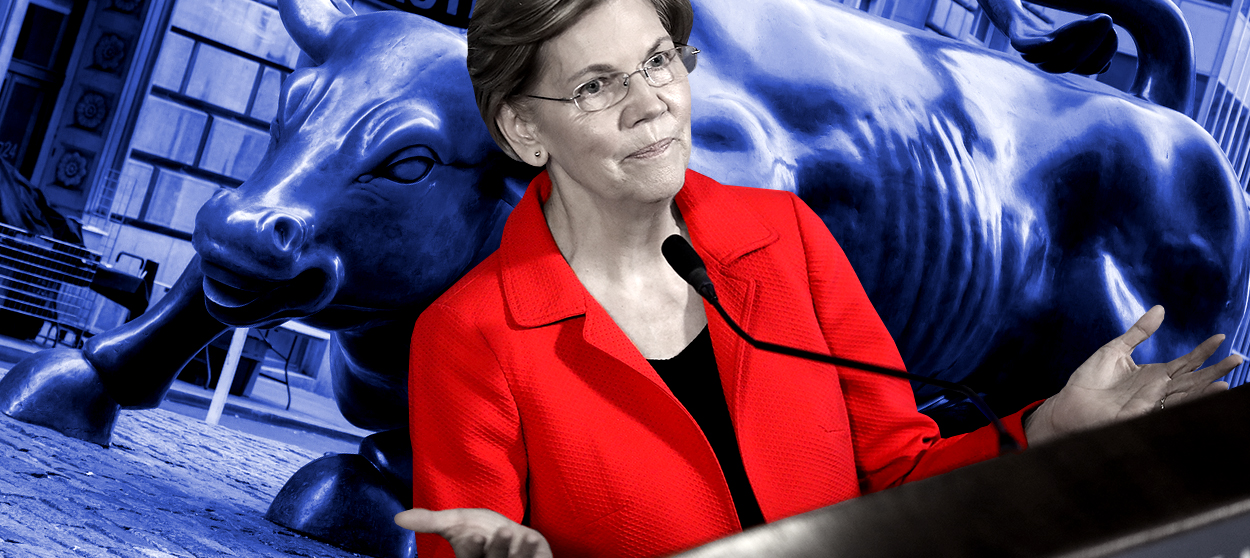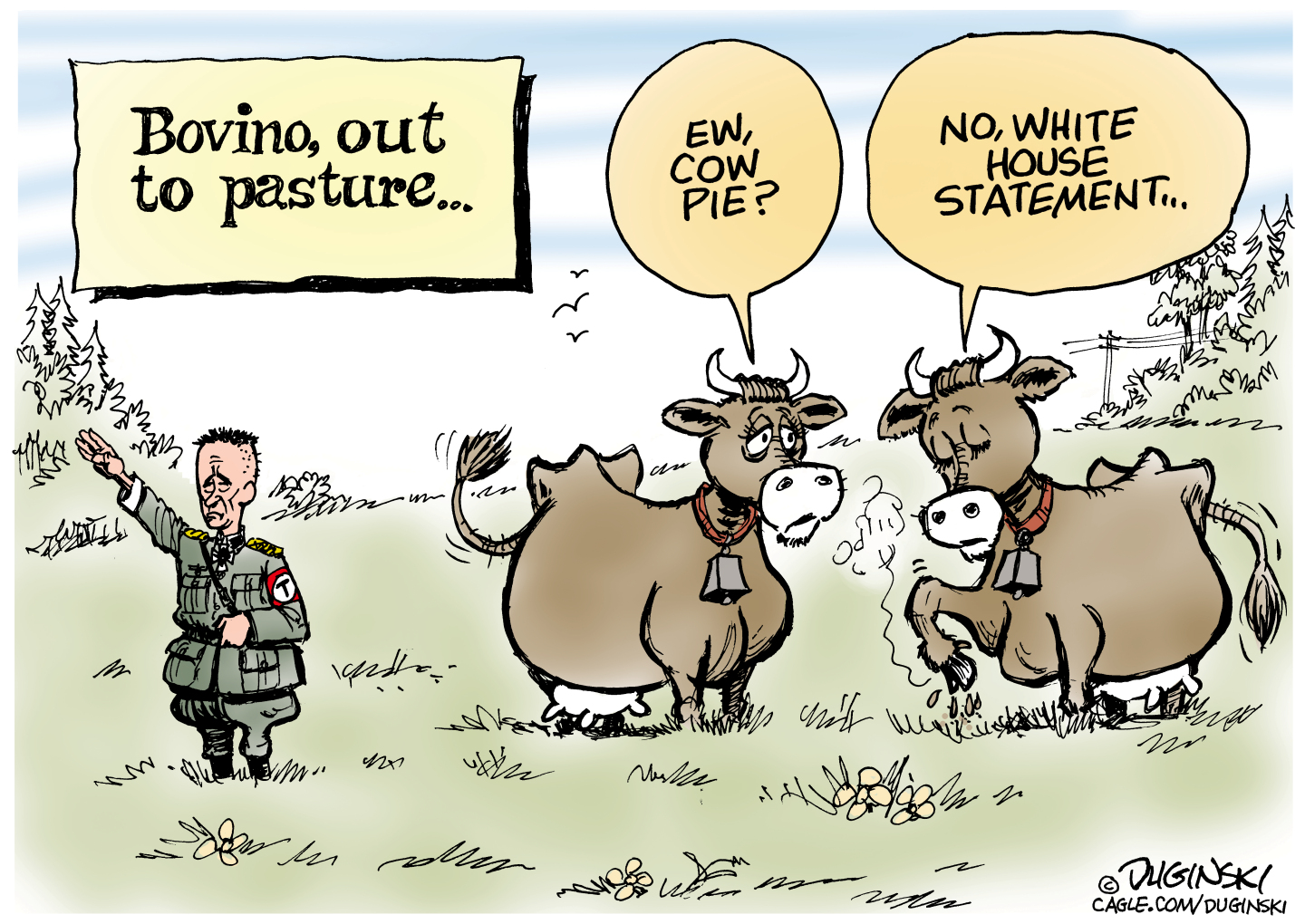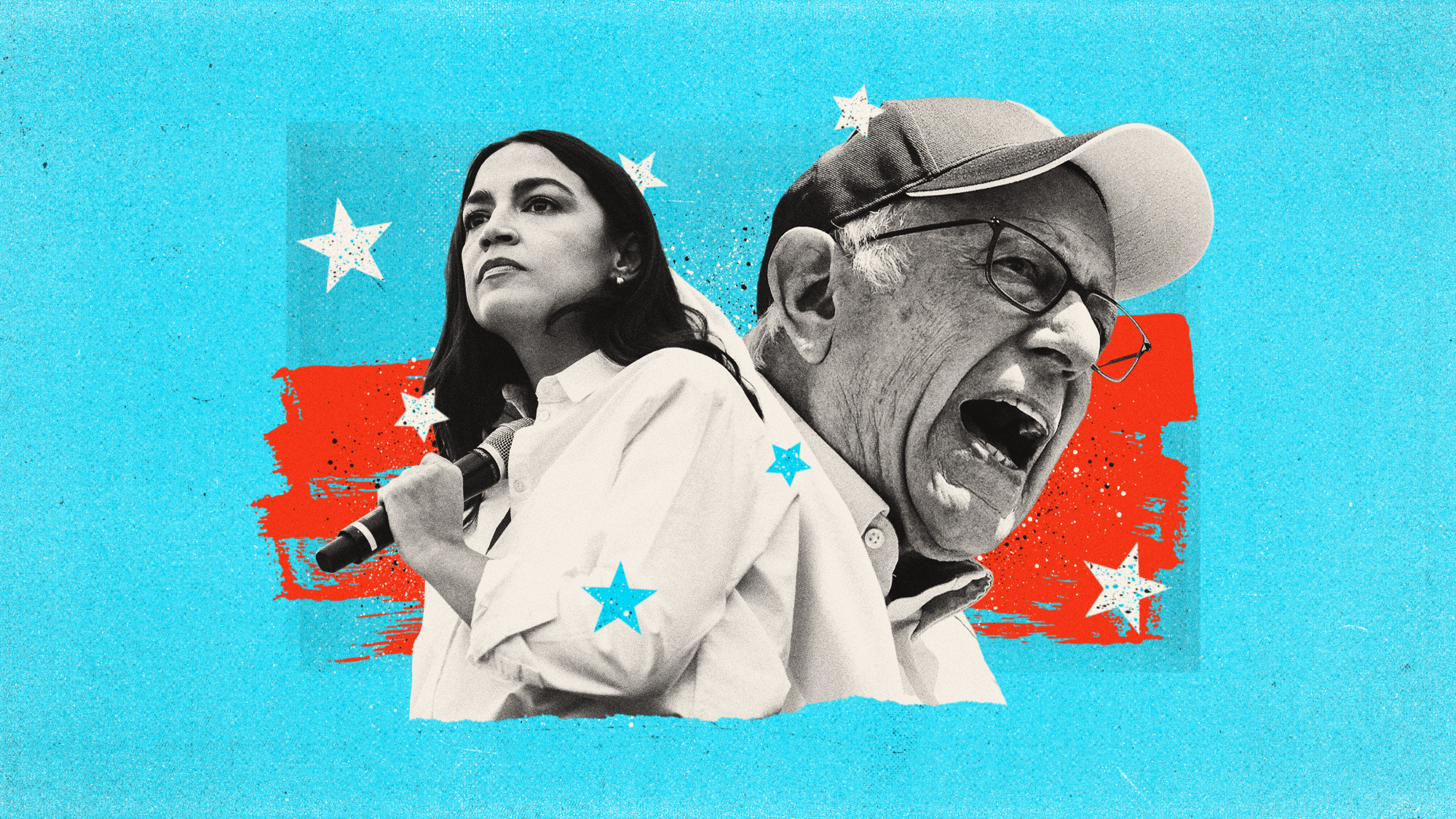Where Elizabeth Warren differs from Bernie Sanders
Despite the natural affinity of these two liberal icons, the way they think about policy is actually rather distinct


With her announcement of an "exploratory committee" this week, Elizabeth Warren is almost certainly going to run for president. And when she does, she is almost certainly going to occupy the same left flank of the 2020 Democratic field as another firebrand senator from a Northeastern state, Bernie Sanders.
Yet despite the natural affinity of these two liberal icons, the way they think about policy is actually rather distinct, in ways both important and illuminating.
A lot has changed since Warren last contemplated a presidential run back in 2015. Hillary Clinton's triumph over Bernie Sanders in the 2016 Democratic primaries and subsequent loss in the general election to President Trump seems to have loosed the party from many of its imaginative shackles. The kind of economic policies Sanders championed — ideas considered wildly radical or unrealistic a mere three years ago — are now being adopted by many of the party's likely contenders.
The Week
Escape your echo chamber. Get the facts behind the news, plus analysis from multiple perspectives.

Sign up for The Week's Free Newsletters
From our morning news briefing to a weekly Good News Newsletter, get the best of The Week delivered directly to your inbox.
From our morning news briefing to a weekly Good News Newsletter, get the best of The Week delivered directly to your inbox.
Sanders happily identifies himself as a democratic socialist (as increasing numbers of young Americans do). But more specifically, Sanders tends to champion the Nordic model, where the government provides a wide array of services, from health care to child care to generous income supports and more, thus rolling back the amount of human life governed by markets. Sanders wants to pass a national a single-payer health-care system and make college tuition free for everyone. He also aims to break up the big banks and pass a $1 trillion public investment in infrastructure.
To people who identify as centrists or conservatives, Warren and Sanders no doubt look like two peas in a pod. But Warren actually still self-identifies as a capitalist. "I believe in markets and the benefits they can produce when they work," she told The Atlantic. "Markets with rules can produce enormous value."
Warren focuses on going into the guts of markets themselves and fixing them. Rather than just rolling back markets' domain, she wants to alter their mechanisms so they better serve ordinary citizens.
Capitalism is really nothing more than a set of rules for how people can interact economically. And those rules do not write or enforce themselves. Government has to do that. Warren's thesis is basically that, over the last four decades or so, government has either rewritten the rules — or simply failed to police them — in a way that's siphoned off all the wealth and power to a small group of huge corporations and ultra-rich individuals.
A free daily email with the biggest news stories of the day – and the best features from TheWeek.com
A few concrete examples of Warren's approach: The Consumer Financial Protection Bureau — her brainchild — was premised on the idea that financial firms and banks use their size, complexity, and leverage to basically swindle Americans on a grand scale. Her proposed banking bill would separate out the industry's investment and commercial functions, with an eye towards cutting down on risky trades, and thus reducing the need for public bailouts. Warren's housing bill would use expanded public spending on housing aid as a carrot to convince local governments to change their zoning regulations. She also wants to improve transparency in government rule-making, strengthen ethics laws, end the revolving door, and basically do away with corporate lobbying as it currently functions. Warren would campaign as an anti-corruption candidate as much as anything.
Warren also often mentions the decline and fall of U.S. trust-busting, which opened the door to massive mergers and corporate behemoths that can squash competitors and exploit consumers and workers. "I love competition," she told The Atlantic. "I want to see every start-up business, everybody who's got a good idea, have a chance to get in the market and try."
Then there's Warren's Accountable Capitalism Act. It would alter capital gains taxes to move corporate incentives away from short-term profits. It would use the government's legal authority over corporate charters to force big businesses to consider the interests of consumers, workers, and the environment — as opposed to just stakeholders. Most dramatically, it would hand 40 percent of every corporate board over to representatives elected by the business' own workers. Warren wants to make markets more equal, but she also wants to make them more democratic.
This is pretty different from Sanders. You could imagine an entirely plausible scenario, for instance, where the Sanders approach succeeds in rolling back the influence of markets, but the market realm is still ruled by giant corporations while the non-market world is run top-down by big government.
Ultimately, however, Warren and Sanders differ more on emphasis and strategy than on long-term end goals. Warren is a co-sponsor on Sander's Medicare-for-all bill, for instance, as well as his proposal to strengthen unions. She is also co-sponsoring Sen. Cory Booker's (D-N.J.) job guarantee pilot program — a very Warren-esque project to democratize power in the labor market — while Sanders is plotting a full-blown national version of the same idea. They might have important philosophical differences, but in the hurly burly of American politics, they often end up in similar places.
And regardless of who wins in 2020, both Warren and Sanders will remain crucial figures within the Democratic Party, long after the next election is over.
Jeff Spross was the economics and business correspondent at TheWeek.com. He was previously a reporter at ThinkProgress.
-
 5 redundant cartoons about Greg Bovino's walking papers
5 redundant cartoons about Greg Bovino's walking papersCartoons Artists take on Bovino versus bovine, a new job description, and more
-
 31 political cartoons for January 2026
31 political cartoons for January 2026Cartoons Editorial cartoonists take on Donald Trump, ICE, the World Economic Forum in Davos, Greenland and more
-
 Political cartoons for January 31
Political cartoons for January 31Cartoons Saturday's political cartoons include congressional spin, Obamacare subsidies, and more
-
 The billionaires’ wealth tax: a catastrophe for California?
The billionaires’ wealth tax: a catastrophe for California?Talking Point Peter Thiel and Larry Page preparing to change state residency
-
 Mamdani vows big changes as New York’s new mayor
Mamdani vows big changes as New York’s new mayorSpeed Read
-
 Bari Weiss’ ‘60 Minutes’ scandal is about more than one report
Bari Weiss’ ‘60 Minutes’ scandal is about more than one reportIN THE SPOTLIGHT By blocking an approved segment on a controversial prison holding US deportees in El Salvador, the editor-in-chief of CBS News has become the main story
-
 Has Zohran Mamdani shown the Democrats how to win again?
Has Zohran Mamdani shown the Democrats how to win again?Today’s Big Question New York City mayoral election touted as victory for left-wing populists but moderate centrist wins elsewhere present more complex path for Democratic Party
-
 Millions turn out for anti-Trump ‘No Kings’ rallies
Millions turn out for anti-Trump ‘No Kings’ ralliesSpeed Read An estimated 7 million people participated, 2 million more than at the first ‘No Kings’ protest in June
-
 Ghislaine Maxwell: angling for a Trump pardon
Ghislaine Maxwell: angling for a Trump pardonTalking Point Convicted sex trafficker's testimony could shed new light on president's links to Jeffrey Epstein
-
 The last words and final moments of 40 presidents
The last words and final moments of 40 presidentsThe Explainer Some are eloquent quotes worthy of the holders of the highest office in the nation, and others... aren't
-
 The anger fueling the Bernie Sanders and Alexandria Ocasio-Cortez barnstorming tour
The anger fueling the Bernie Sanders and Alexandria Ocasio-Cortez barnstorming tourTalking Points The duo is drawing big anti-Trump crowds in red states
